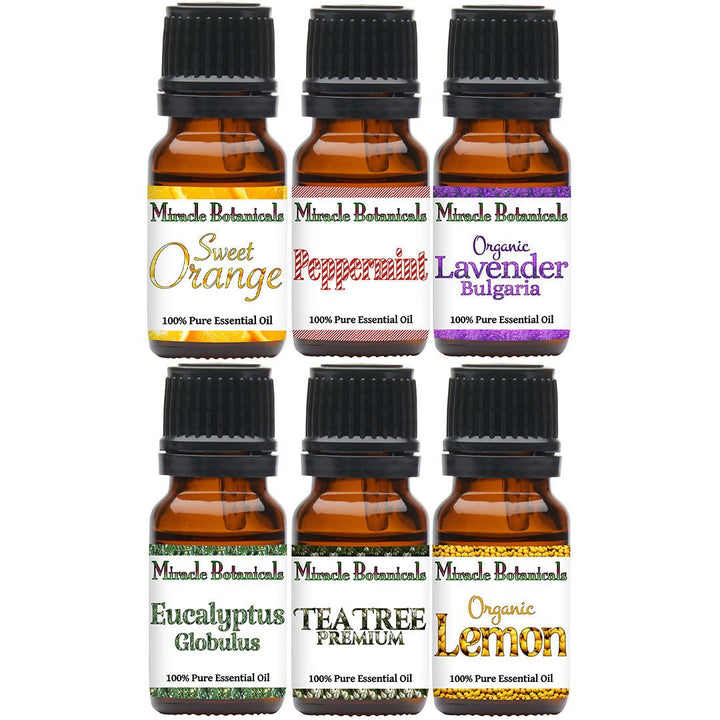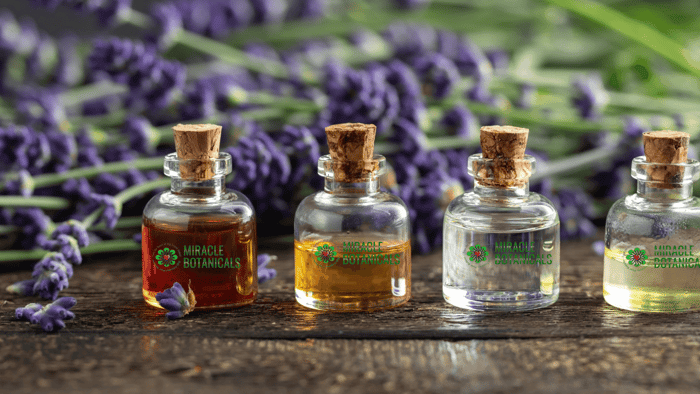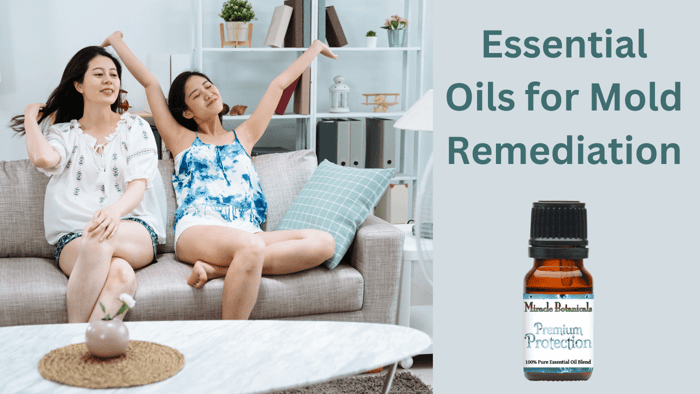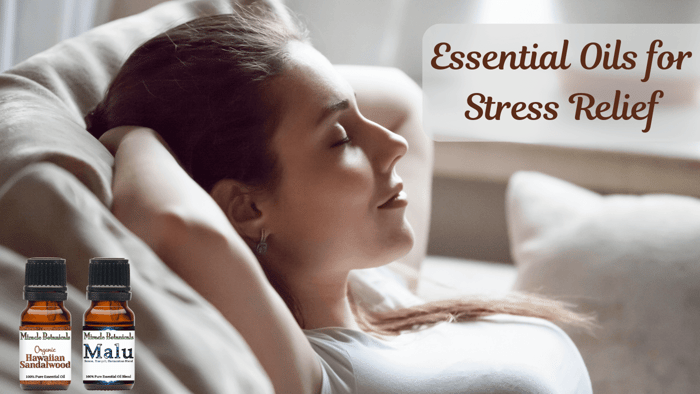In exploring the realm of natural wellness, one might ask, "What are essential oils for?" These potent botanical extracts offer a myriad of health benefits, from alleviating insomnia and anxiety to managing depression and blood pressure. Essential oils, known for their ability to enhance cognitive function and provide relief from nausea and irritable bowel syndrome, stand at the forefront of alternative medicine. Their applications span from relaxing the mind and body to bolstering holistic health, positioning them as invaluable tools in one's wellness arsenal. 
Diving deeper, this article unfolds the science behind essential oils, practical uses for essential oils, and safety guidelines. Whether you're new to aromatherapy or seeking to expand your knowledge on how to use essential oils effectively, our exploration offers insights into choosing quality oils tailored to your health goals. By integrating essential oils into your lifestyle, you embark on a holistic journey towards improved well-being, tapping into the profound benefits that these natural wonders offer.
What Are Essential Oils?
Essential oils are concentrated, volatile liquids derived from plants. These oils capture the plant's scent, flavor, and essence, offering a myriad of uses ranging from aromatherapy to natural medicine. The extraction of these oils is a meticulous process, ensuring the preservation of their therapeutic properties and aromatic qualities.
Definition and Origin
An essential oil is a concentrated hydrophobic liquid containing volatile chemical compounds from plants, known also as volatile oils, ethereal oils, or aetheroleum. These oils are essential in the sense that they carry the essence of the plant's fragrance. Most commonly extracted by distillation, essential oils are used in various products like perfumes, cosmetics, and for flavoring food and drink. The raw plant material, including flowers, leaves, wood, bark, roots, seeds, or peel, undergoes a process where the volatile compounds are vaporized and then condensed back to liquid form for collection [1][2].
Extraction Methods
The extraction of essential oils employs several methods, each suited to specific plant types and parts. Among the most popular are:
 Steam Distillation: The most widely used method, where steam vaporizes the plant's volatile compounds, which are then condensed and collected. This method is particularly effective for extracting oils from herbs and flowers. Most of Miracle Botanicals' essential oils came through steam distillation.
Steam Distillation: The most widely used method, where steam vaporizes the plant's volatile compounds, which are then condensed and collected. This method is particularly effective for extracting oils from herbs and flowers. Most of Miracle Botanicals' essential oils came through steam distillation.
- Cold Press Extraction: Used primarily for citrus peels, this method involves mechanically expressing the oils from the peel. It is favored for its ability to preserve the integrity of the oil. Miracle Botanicals citrus essential oils are cold pressed from the peel.
- Absolute/Solvent Extraction: Suitable for delicate plant materials that produce low amounts of oil or cannot withstand the heat of steam distillation. This method uses solvents like hexane to isolate the oils. Miracle Botanicals does not carry any essential oils with hexane or other toxic solvents. At the time of this writing, the only absolute we carry is our lovely Cacao Absolute Oil, extracted using Food-Grade ethanol with a little added vanillin. This Cacao oil is a hit with our customers. It tastes and smells like chocolate, and it's mobile enough to work with.
- CO2 Extraction: This method produces oils similar to those obtained through steam distillation, suitable for aromatherapy and natural perfumery. It uses supercritical CO2 as a solvent to extract the oil. At Miracle Botanicals, we love . This type of extraction is a cold process and seems to capture the essence of many botanicals better than steam distillation. We especially favor this method for spices like turmeric, ginger, cardamom,turmeric and ginger, cardamom and vanilla. Some of our favorite carrier oils are CO2 extracted, like our Rosehip Seed Oil and Pomegranate seed oil.
- Maceration: Carrier oils are used to extract therapeutic properties from plant material, producing infused oils. Miracle Botanicals Arnica carrier oil is produced through maceration.
At Miracle Botanicals, we only source oils extracted using methods that ensure the highest quality of essential oils, retaining their potent therapeutic and aromatic properties. Essential oils derived using appropriate methods are integral to practices like aromatherapy, where therapeutic essential oils are a must.
I would always use therapeutic-quality essential oils no matter what the application because I want to inhale as much therapy as possible. Perceiving this world tends to weigh heavily on the mind, and true essential oils help lighten the load.
How Do Essential Oils Work?
Aromatherapy Basics
Aromatherapy, the practice of using essential oils for therapeutic benefit, has been utilized for centuries. When inhaled, scent molecules in essential oils travel from the olfactory nerves directly to the brain, particularly impacting the amygdala, the emotional center of the brain [12]. This nervous system stimulation initiates a chain reaction of signals to the brain and chemical responses throughout the body, beginning once you start smelling an essential oil [13]. The molecules of essential oils, being volatile, are delivered to the brain region via different pathways according to their molecular sizes, involving both the olfactory and respiratory systems [21]. This process can influence mood, sleep, and digestion by releasing hormones like serotonin, endorphins, and dopamine [13].
Skin Absorption
Essential oils can also enter the body through skin absorption. When applied topically, the molecules in the essential oils are small enough to penetrate through the skin. They travel through the epidermis, reaching the dermis and the blood vessels, allowing them to circulate to all body areas. This method of entry is particularly effective when essential oils are used in massage, as the skin absorbs the oils and you also breathe them in, providing a dual mode of delivery [14]. Factors such as the rate of circulation and the warmth of the skin can increase the skin's ability to absorb these oils. Moreover, essential oils increase skin penetration by interacting with the stratum corneum and are successful in enhancing the skin penetration of both lipophilic and hydrophilic drugs [20].
Interacts with the Limbic System
The limbic system, a complex structure beneath the temporal lobe, plays a significant role in managing our emotions, memories, and stimulation. Inhaling essential oils is the fastest way to introduce essential oils into your system. The molecules are absorbed by the hairs inside your nostrils, which send a signal to the olfactory bulb in your limbic system. This direct connection to the limbic system explains why smells often trigger emotions [25]. Essential oils seem to have a powerful effect on both the hypothalamus and pituitary gland, stimulating them to produce neurochemicals and hormones that balance and regulate various systems within the body. This demonstrates how essential oils can help us transform emotions and shows that our brains may have recorded links between aromas and memories.
Types of Essential Oils and Their Uses
Essential oils, with their myriad health benefits, have become a cornerstone in holistic wellness and aromatherapy practices. Derived from the roots, leaves, flowers, woods/barks, and peels of select plants, these aromatic oils are celebrated for their ability to enhance emotional and physical well-being. This section delves into the common essential oils available and their specific applications and health benefits, providing a comprehensive guide to enjoying these natural wonders.
Common Essential Oils
- Lavender: Known for its calming and relaxing properties, which aid digestion and boost energy, and is widely used to alleviate stress, improve sleep quality, and soothe skin irritations [32].
- Peppermint: This oil is celebrated for its invigorating effects, which aid digestion, help boost energy, and help people get relief from headaches [34].
- Tea Tree: With potent antiseptic qualities, tea tree oil is known as an effective remedy for acne, athlete's foot, and other fungal infections [32].
- Eucalyptus: Ideal for clearing sinuses and easing respiratory conditions, making eucalyptus oil a must-have during cold and flu season [32].
- Lemon: This citrus oil is known for its uplifting and purifying properties, making it a popular choice for enhancing mood and cleaning applications [32].
Specific Applications and Health Benefits
- Stress and Anxiety Relief: Neroli and Cape Chamomile oils are thought to be particularly effective in reducing stress and anxiety levels, promoting a sense of calm and well-being. At Miracle Botanicals, we know the impact of therapeutic essential oils on the mind and mood. The two essential oils I mentioned are both gentle and potent.

- Sleep Enhancement: Valerian root has been used for centuries to treat insomnia and promote relaxation. Its oil can help improve sleep quality. At Miracle Botanicals, we offer Sweet Dreams essential oil blend, the most effective sleep-inducing essential oil blend we've ever experienced.For those who are sensitive to Valerian and some of the other pungent aromas in the blend, we offer Sleepy essential oil blend.
- Antibacterial Properties: Tea tree, manuka, and oregano oils are recognized for their antibacterial effects, offering a natural solution for resolving infections and enhancing skin health [34]. At Miracle Botanicals, we take great care to source the most potent versions of these oils. There are many grades of these oils and we know the difference. Our tea tree is AAA rated, our manuka is rare and contains the highest concentration of Triketones only found on the Eastern Cape of New Zealand, and both of our oregano essential oils have over 60% Carvacrol.
- Anti-inflammatory Effects: Frankincense and chamomile oils are known for their anti-inflammatory properties, providing relief from conditions such as arthritis and skin irritations [32]. At Miracle Botanicals, we have several frankincense and chamomile essential oils. They are all anti-inflammatory oils, so have fun exploring our collections.

- Digestive Support: Peppermint oil, along with other oils that support digestion, is widely used to ease digestive discomfort, including nausea and irritable bowel syndrome [34]. At Miracle Botanicals, we crafted a blend for digestive health. We call it Opu Pono essential oil blend. See our product listing for more details.
Incorporating these essential oils into your wellness routine can significantly enhance your health and overall quality of life. Whether used in aromatherapy, applied topically, or added to personal care products, the benefits of essential oils are vast and varied, making them an invaluable asset in the pursuit of natural well-being.
Practical Applications and Safety Guidelines
Using Essential Oils Safely
To enjoy the benefits of essential oils while ensuring safety, it's paramount to adhere to certain guidelines. This precaution helps prevent skin irritation or burns from "hot" oils like peppermint, cinnamon, or clove [48].
When introducing essential oils into your routine, start with a patch test to monitor for any allergic reactions. Additionally, keep essential oils away from sensitive areas such as the eyes, ears, and mucous membranes to avoid irritation [46]. For those considering the aromatic benefits of essential oils, diffusing in a well-ventilated area and adhering to recommended dilution guidelines can provide a safer inhalation experience [48].
Avoiding Common Pitfalls
Understanding the potent nature of essential oils is helpful to avoid misuse. Essential oils are highly concentrated and can be toxic if used improperly. It's also important to recognize that natural does not always mean safe for the patient; misuse of essential oils can trigger various reactions. To mitigate risks, refer to our essential oils safety guide, consult an aromatherapist, especially when using essential oils for children, during pregnancy, or for other special needs or conditions.
Storage plays a significant role in maintaining the efficacy and safety of essential oils. Keep them in a cool, dark place with tightly sealed lids to prolong their shelf life and prevent accidental ingestion, particularly by children or pets [46].
Considerations for Special Populations
Special populations such as infants, children, the elderly, pregnant or breastfeeding women, and those with health conditions require additional caution. For infants and children, dilute essential oils more than you would for adults and avoid oils known to be hazardous, like eucalyptus and peppermint for young children. Conventional wisdom recommends that pregnant women consult with their healthcare provider before using essential oils, as some oils can cross the placental barrier and potentially affect the fetus [48].
In summary, while essential oils offer a myriad of health benefits, their safe use is contingent on proper knowledge, preparation, respect for their potency, and perhaps more importantly, intuition. By considering these guidelines with the goal of using essential oils for healing, you can enjoy the holistic wellness benefits of essential oils while minimizing risks.
Choosing and Buying Essential Oils
When embarking on the journey of incorporating essential oils into your wellness routine, understanding the nuances of purity and quality is paramount. The market's vast array of options can be overwhelming, but with informed choices, you can ensure the essential oils you select are of the highest caliber, offering the most therapeutic benefits.
Purity and Quality
- Assessing Quality: The quality of essential oils can vary significantly, influenced by factors ranging from plant growing conditions to storage practices. Unfortunately, the United States lacks standardized quality control for essential oils, making it crucial to source from reputable suppliers [62].
- Understanding Purity: A pure essential oil should be fully composed of the plant species listed on its label, without any adulteration or contamination. Adulteration, a practice aimed at reducing costs, can involve adding synthetic substances or diluting the oil with cheaper carriers [63].
- Supplier Ethics and Accountability: The integrity of your essential oils starts with the ethics of your supplier. Look for suppliers with a solid reputation, transparency through accessible GCMS reports, and a clear commitment to purity.
Recommendations for First-Time Buyers
To navigate the essential oil market effectively, especially for those new to aromatherapy, consider the following steps:
- Identify Your Needs: Determine the primary reasons for adding essential oils to your life, whether for their aroma, physical effects, or aromatherapy benefits. This will guide your selection process.
- Research and Select: Once you've identified your needs, research which essential oils are reputed to meet them. Opt for oils that you find appealing, both in aroma and therapeutic properties.
- Starter Kit Recommendations: For beginners, a starter set can offer great value. Select a set that includes versatile oils like lavender for calming, tea tree for its antibacterial properties, and citrus oils for cleaning. These kits provide a solid foundation for exploring the world of essential oils.
Introductory Essential Oil Set - 6 Basic Essential Oils in Premium Grade

$97.00
Premium Essential Oil Introduction Set containing Organic Lavender, Organic Lemon, Eucalyptus Globulus, Tea Tree, Orange and Peppermint Method of Extraction: Steam Distilled (6) 10ml Amber Glass European Dropper Bottles … read more
- Quality Over Price: While bargains are tempting, the price of essential oils often reflects their quality. Essential oils require significant plant material for a small amount of oil, so a very low price may indicate compromised quality. Choose quality over cost to ensure the therapeutic benefits of the oils.
By adhering to these guidelines, you can confidently select and purchase essential oils that will enrich your health and wellness journey, ensuring you receive the full spectrum of benefits these natural wonders have to offer.
Conclusion
Through this exploration, we've unveiled the multifaceted world of essential oils and their capacity to elevate health and well-being. Highlighting their diverse applications, from aromatherapy and stress relief to their antibacterial and anti-inflammatory properties, essential oils emerge as a cornerstone in the realm of natural wellness. Our careful procurement and application of these potent botanical extracts underscore our awareness of their significant role in supporting health and wellness.
We've been here since 2011, emphasizing the importance of selecting high-quality essential oils tailored to your health goals.
As we reflect on the profound medicinal value offered by essential oils, it becomes clear that integrating them into our daily routines can offer a multitude of benefits. To embark on a journey of natural well-being and to access a curated selection of high-quality oils, consider our offerings. Embracing essential oils as a part of holistic health practices not only promotes well-being but also connects us deeper with the natural world and to the abundance and healing quality of our all-powerful mind.
FAQs
- Which essential oils offer significant health benefits?
Essential oils widely recognized for their health benefits include:- Chamomile - Especially Cape Chamomile: For relief from stress and anxiety
- Clary Sage: Used as an in relaxation and balancing hormones
- Eucalyptus: For clearing the sinuses and chest congestion.
- Ginger: To reduce nausea.
- Lavender: To promote restful sleep.
- Lemon: For happiness and focused concentration.
- Peppermint: To boost alertness and help reduce headaches.
- Rosemary: For enhanced focus and for healthy hair
- What are the best essential oils for improving mental wellbeing?
All essential oils are amazing at helping restore a mind that's projecting sick bodies back to sanity. Here are a few that I find particularly beneficial for mental wellbeing: - What are the best essential oil blends for improving mental wellbeing?
Here are some of my favorites... - How can essential oils be used to enhance wellness?
Essential oils can be introduced into the body in several ways:- Topical Application: This includes methods such as compresses, sprays, baths, or directly massaging the oils into the skin.
- Inhalation: Breathing in the aroma of essential oils.
- Ingestion: Although less common and typically advised under professional guidance, some essential oils can be ingested.
(See our Article for different Ways to Use Essential Oils)
- What are the most therapeutic essential oils to use regularly?
Really, start experimenting with essential oils, and you will find out which ones benefit you to use regularly. Here are some that I recommend using regularly (See their individual product listings for more details on each oil):- New Zealand Lavender: Lavender has so many uses, from bug bites to more restful sleep to helping with congestion. Its low linalool concentration makes it ideal for regular use.
- Peppermint: Highly recommended for digestive issues. If you overdo this one, it will feel like heartburn. Pull back. A little goes a long way. A more well-rounded alternative for digestion is my Opu Pono Digestive essential oil blend. You can also put this on your temples or diffuse for headache relief and to increase focus.
- Palo Santo: Ideal for massages, pain relief, meditation, and as a personal aroma whether used on its own or blended. It's a star in my Pain and Nerve blend.
- Inula or Eucalyptus Globulus: As a remedy for sinus or chest congestion and for general mental clarity. Diffuse, inhale, or dilute in a carrier oil and rub on the chest or over the sinuses.
- Hawaiian Sandalwood: Stimulates circulation, cancer therapy, skincare, and it's both deep and uplifting.
- Himalayan Cedarwood: Promotes emotional balance, which translates to physical balance and fortitude.
- Ylang Ylang: Excellent for relaxation, as an aphrodisiac, and for a beautiful floral aroma at an economical price. Dab behind the ears and on the wrists, inhale, and smile.
- Citrus Oils: Diffuse and/or inhale these regularly to promote happiness and upliftment. Don't apply directly to the skin without a carrier oil.
- Frankincense: In the realm of aromatherapy uses, frankincense can be used for anything. It is extra gentle, and we like to slather it all over ourselves. We've been doing that since 2011, and we still love it.
(Note: The only frankincense that we don't recommend using generously is the papyrifera. This is a very special frankincense, and it can brighten any blend, but it's better in dilution with carrier oil or other essential oils.)









